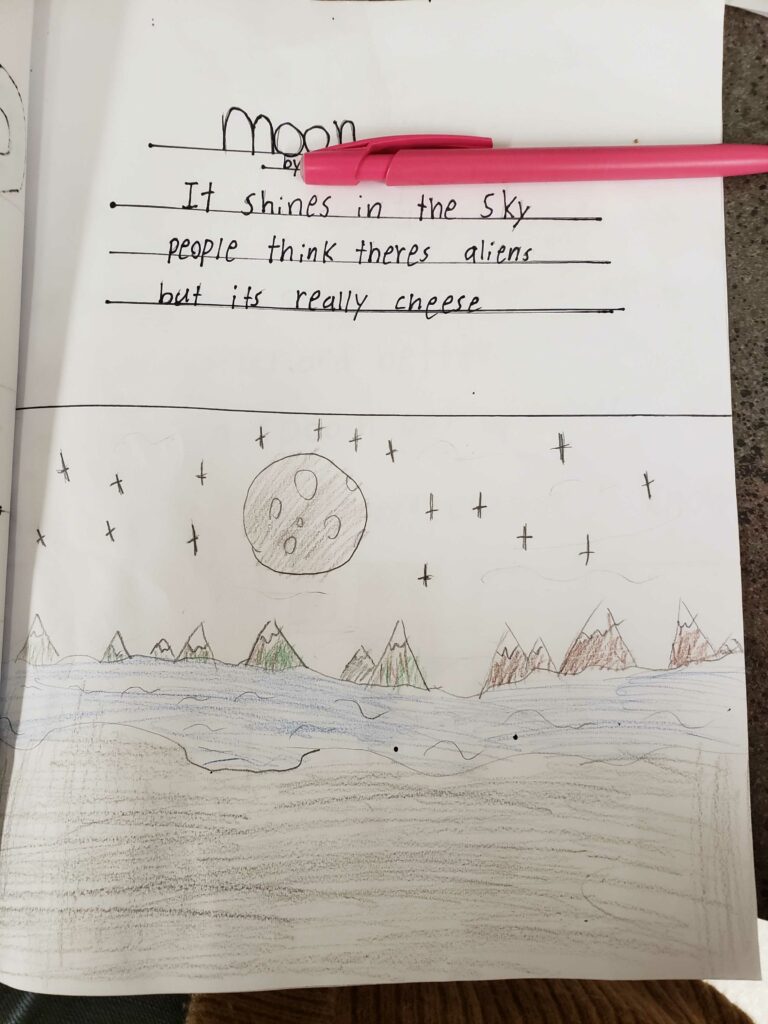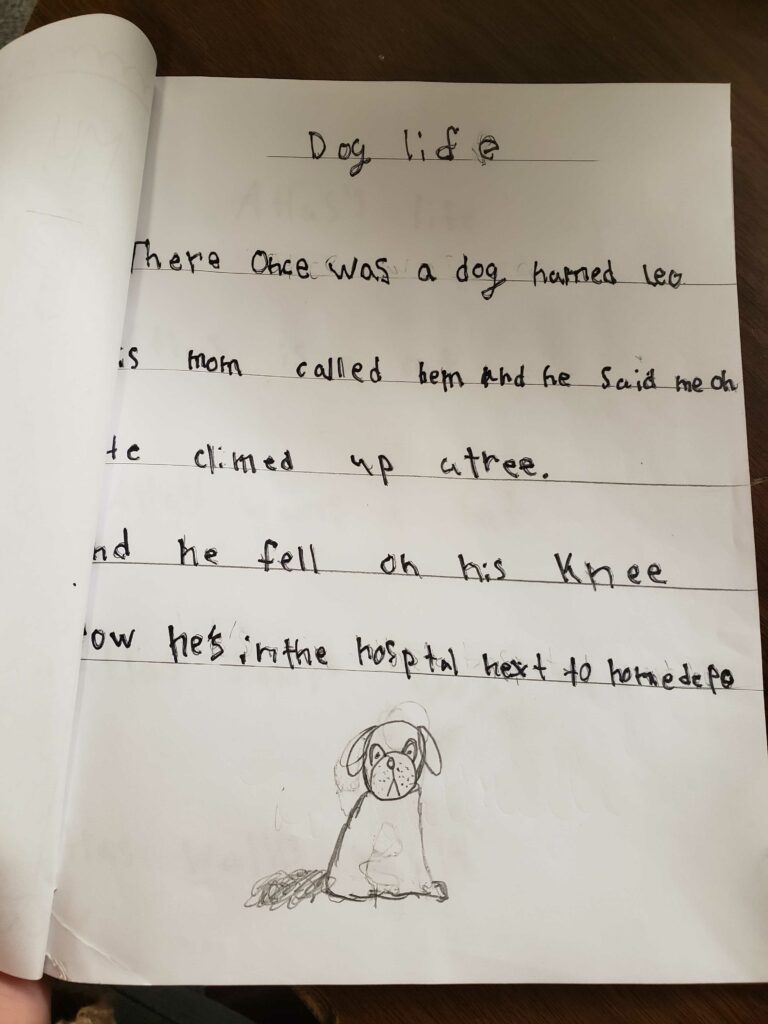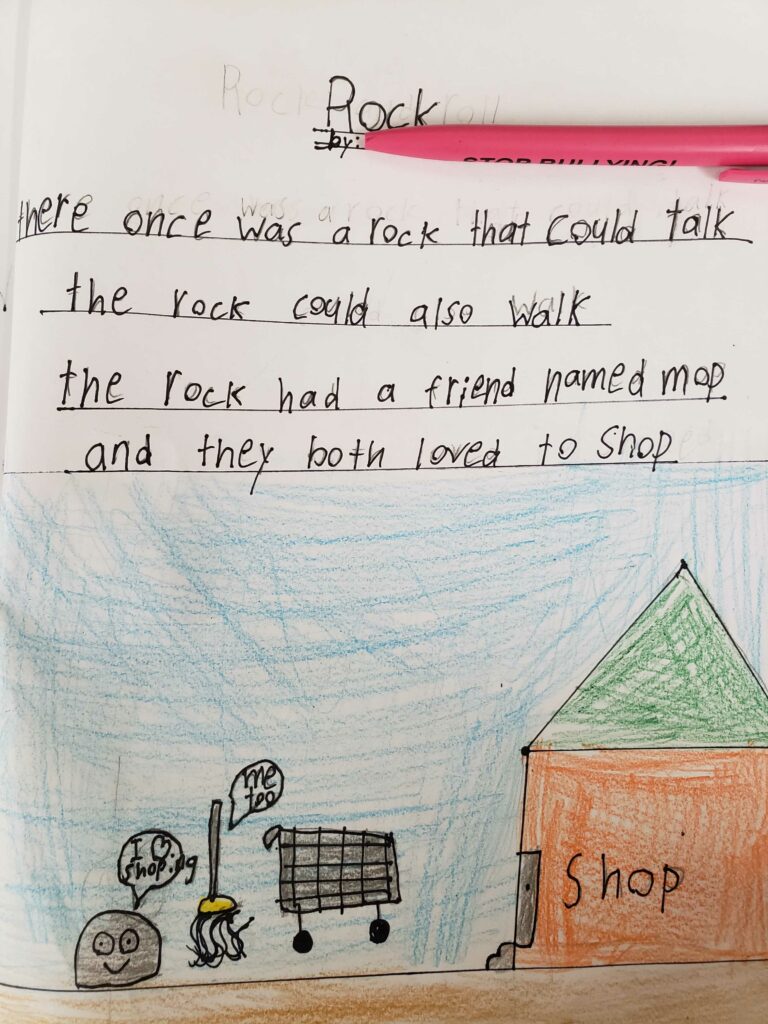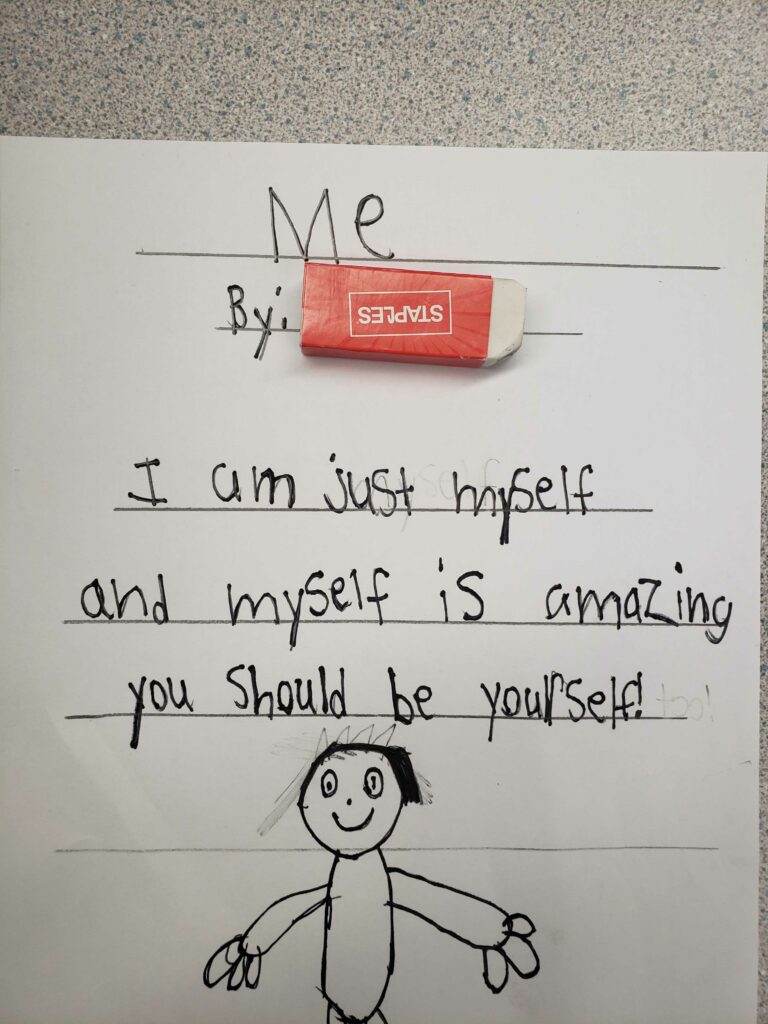EDUC 490 is finished and I am both sad that I don’t get to be in the classroom with those students anymore and excited that I am one step closer to being ready to go teach on my own!
My 490 practicum was in a grade 5 class. It was definitely a big jump from my 391 grade 2 class. I really enjoyed both experiences though and am no closer to figuring out what age range I want to teach. This will be great, though, once I graduate, because it means I won’t be super picky in choosing a job.
One of my big strengths as a teacher is my positivity. This is something that my CTs and my students have mentioned to me (“Ms. Murray, you’re so nice.”). I try to be as positive as I can, especially when students are offering suggestions and answers to questions. Even when what they say isn’t quite what I’m looking for, I try to say something like “Oh, that’s so interesting and I can see how you got there. Now let’s try looking at it like this.” I give students a lot of “That’s awesome!” “You got it!” and other comments along those lines on their answers and their contributions to discussions. I know that it’s super easy for students to become discouraged and shut down, and you don’t always know which students might not get encouragement at home, so I try to be as encouraging and positive as possible for my students at all times.
Another strength of mine is making connections with students. Over the course of the practicum, I was able to connect with each of my students in one way or another, and tried to get to know them as well as I could in four short weeks. When one student sprained his wrist at school, for example, I made sure to ask him questions about his trip to the hospital when he came back to school the next day. I’d already figured out that this was a kid who didn’t get a lot of positive attention at home (he was one of, I believe, four boys, three of which were diagnosed with ADHD and the fourth of whom was going through testing), so I made sure to encourage him as much as possible. In this particular instance, he was excited to tell me about how he’d spent five whole hours in the ER – “that stands for emergency room” – and how he got x-rays and a sling and all the other exciting details that stand out for a 10 year old going to the hospital. He just wanted to talk about it, which I can relate to having broken my arm at around the same age, and just wanted someone to ask him questions about it and care, and taking a couple minutes out of my morning to be that person was the least I could do. I tried to do the same for the rest of my students as well. I chatted with them about what they’d done the night before or what they were watching on TV, and tried my best to make connections with them in as many ways as possible so they’d be able to see me as someone they could talk to and someone that they could listen to and learn from.
Something I was really working on during this practicum was classroom management. The class I was in was really good for working on that, as they were a high energy group with a few students who had ADHD. I think I’ve really improved on my ability to call out students who are distracting themselves and/or others, and at redirecting their focus onto what I’m teaching them or what they should be working on. I’ve also been working on, and, I believe, improving on, more general classroom management: my “teacher voice”, my teacher “look”, being able to get students attention while not yelling over them. I could definitely use more work on this, but I know that I have even noticed improvements since the beginning of this practicum.
Another thing I definitely need to work on is assessment. I understand the idea of assessment, and I think I’m pretty good at figuring out whether students understand a concept or need more instruction or practice at it, but actually giving grades for things is another story. For something like math or a science quiz where there are clear right and wrong answers, its easy. But I also did a poetry unit with my students this practicum, and it was definitely a curve getting used to giving them a 1, 2, 3, or 4 on their final poetry books (they all did really good and everyone who handed in their poetry got a 3 or a 4 but it was still a process at the beginning to figure out what was a 3 and what was a 4). I also know, though, that this, like classroom management, is something that only improves with practice, so I’m not worried about not being 100% confident with grading and assessing for grades yet.
One of my favourite things about this practicum was my poetry unit. I know from the personal experience of having once been a ten year old that poetry is not the most exciting thing, so I tried to make this unit as exciting and engaging as possible for students. We spent a week discussing a type of poem a day (quatrains, limericks (which got two days), acrostics, and haikus). Each day, I showed them examples I’d found online and one I’d written myself. We also discussed what aspects (rhyme, syllabic rhythm, tonal rhythm, etc.) were present in each type of poem. We would then as a class create our own example of that type of poem, sometimes two examples, if it was needed or if they all had a lot of ideas, and I’d write them out on the board. And then I’d have students spend the rest of the hour creating their own poetry, which they’d pick their favourite of for me to read through and correct any spelling, and then they’d create a good copy of their favourite poem for their poetry book.
I found that this format for my poetry lessons worked really well for my students. Everyone in the class was really engaged in creating poetry, and several times a lesson a student would ask to read their newest poem to the class. I was worried going in because of my own past experience with poetry being boring and a drag and something you just had to get done so you could move onto something more exciting. I’m really glad that this did not turn out to be the case in my practicum. This was most of these students’ first introduction to poetry – I spoke with the teachers they had last year in the staffroom one day to see what kind of background they were coming in with and both told me that they hadn’t reached the poetry unit last year before everything was shut down for covid – and I think it ended up being a great introduction that will hopefully give these students a continued excitement to write poetry in future years.
I’ve attached pictures of some of my favourite poems below.



